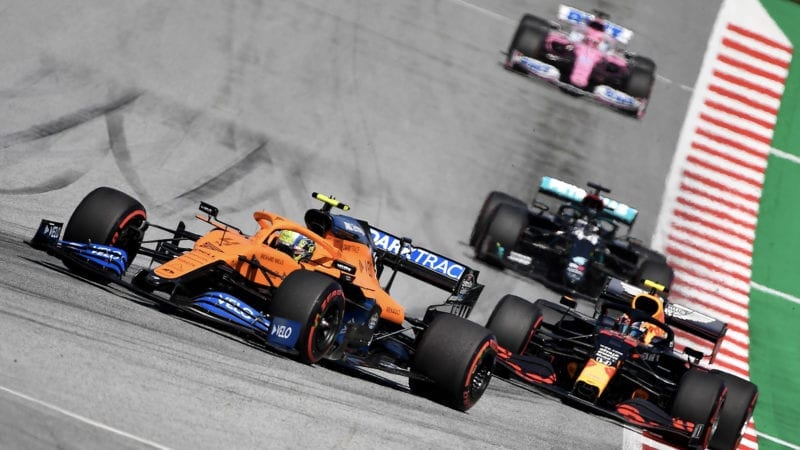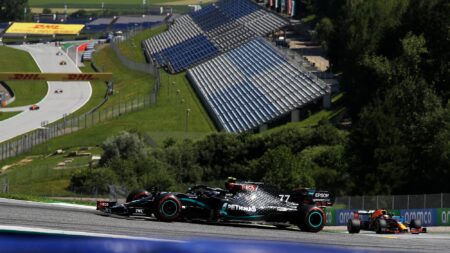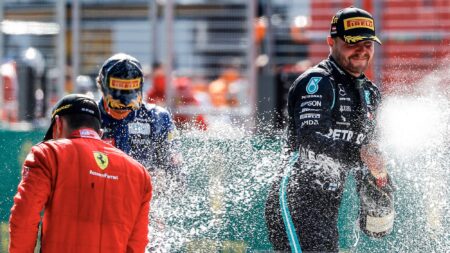The most fundamental stat to point to is that in qualifying the two Mercedes were half a second clear of the field over the shortest lap (in time terms) on the F1 calendar. Now of course race pace is different, but as a broad rule of thumb, if you multiply the apparent advantage by the 71 lap duration of the race, you find that the Mercedes should be able to drop the second best team in F1 by over half a minute over a race distance, which is a free pitstop. At least.
Second, the A1-Ring is arguably not one of Mercedes’s happiest of hunting grounds: Red Bull won on the last two occasions and Lewis has won just once in seven attempts. Compare that to the Hungaroring where the circus goes after next weekend’s Styrian Grand Prix: Lewis has won there no fewer than seven times – over half the races he’s done there – while Mercedes has scooped three of the last five.
The third point to consider is that Mercedes made mistakes last weekend we’re unlikely to see again. Both cars had to be held back because of gearbox issues and Lewis appears to have lost his podium because no one believed Lando Norris capable of completing not just the fastest lap of his race, but of anyone’s race on the very last lap of the race, to reduce his deficit to Lewis to under five seconds. When did a McLaren last set fastest lap? I’m sure there’s some nice kind soul out there who’ll tell me. Mercedes will not be so easily caught out next time.
Mercedes would probably win the title even if it didn’t have the best car
Then there is the Ferrari issue, whose embarrassment over its lack of power and aerodynamic inadequacies not even the fig-leaf of Leclerc’s hard earned but nevertheless fortuitous second place could cover. According to Mattia Binotto, of the one second gulf in pace to the Mercedes, fully 0.7sec is down to the mysterious drop in engine power Ferrari has experienced ever since the FIA investigated the legality of the unit. Its findings have not been published but it is clear the power Ferrari enjoyed before is not there now, and in the face of such silence you and I are entitled to draw whatever conclusions we like.
The real issue with the engine is that even if Ferrari knew how it could get the lost power back in theory, in reality the regs are frozen so it would seem to be stuck with the spec they have for the duration. For those looking for a close title fight, removing from the equation 50 per cent of the teams capable of bringing the fight to Mercedes over the course of a season, this is very bad news indeed.




